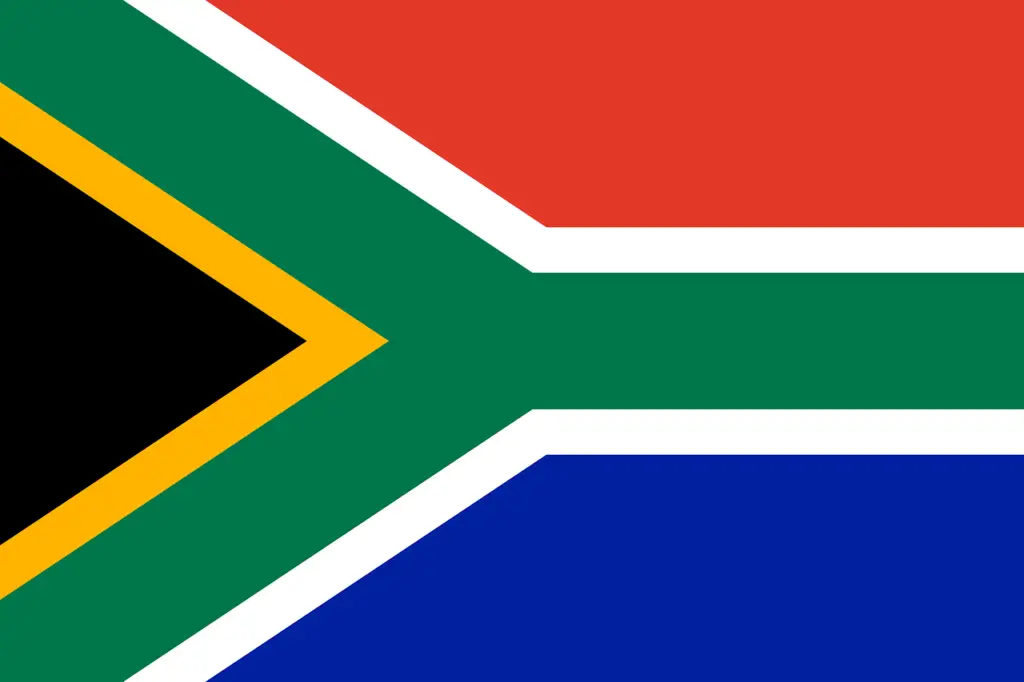With around 10% of the country’s population speaking English as their first language, South Africa isn’t an obvious destination for TEFL teachers looking for work. In fact, it’s more common for South Africans to become TEFL teachers themselves.

Regardless, English is still an important language that many people want to learn in the country. That means whether you’re a South African looking to teach English in your home country, or someone wanting to move there and find work, it’s important to know how much you can earn.
Generally, TEFL teachers in South Africa earn R15,000-28,000 ($900-1,400) per month. Language academies and private schools are the most common employers of foreign teachers, while natives can earn R20,000-40,000 ($1,200-2,400) at public schools. Hourly rates for private classes range from R150 to R250 ($9-15).
Due to the number of native English speakers in South Africa, the job market is competitive. So whether you’re from South Africa or not, you should make sure to understand your options to earn the best salary possible.
Searching for the perfect TEFL destination with the best earnings? Compare countries around the world with my free resource: How Much Do TEFL & TESL Teachers Make? Countries compared.
Options and earnings for TEFL teachers in South Africa
Generally, public schools in South Africa don’t hire foreign teachers, but if you have a degree-level teaching qualification (such as the PGCE), you can get hired by private/international schools.
For everyone, there’s the option of language academies, and private tutoring can be a good earner, too.
| Earnings Source | Per Hour ($) | Hours Per Week | Per Month ($) | Annual Estimate ($) |
|---|---|---|---|---|
| Private/International schools | 8-15 | 40 | 1,200-2,400 | 14.6K-29.1K |
| Public Schools | 8-15 | 40 | 1,200-2,400 | 14.6K-29.1K |
| Language Academies | 8-14 | 25-35 | 900-1,400 | 11K-20.4K |
| Private Tutoring | 9-15 | 20 | 730-1,200 | 8.7K-14.6K |
Let’s be honest, compared to many countries around the world, these salaries aren’t amazing. But before we make any final judgements, lets consider how they match up with the cost of living in South Africa.
The cost of living outside major cities in South Africa is approximately R12-16,000 ($730-970) per month, including rent. This means you can definitely survive on a typical TEFL salary.
In Cape Town and other big cities like Johannesburg and Durban, costs can be higher – in the region of R20,000 ($1,200) per month. Bear in mind the salaries are likely to be slightly higher to compensate for this.

Typically, teacher salaries don’t include airfare or accommodation allowances, so you’ll have to pay everything yourself, as well as income tax if you’re a tax resident there.
The South African school year runs from late January to early December, with a long break in the southern hemisphere summer in December/January. This break is a popular hiring season, but I’d recommend applying for jobs in November to get ahead of the curve.
School days typically start at 7:30 am and finish between 1:00 and 3:00 pm depending on the age of the students (younger kids finish earlier).
How much do TEFL teachers make in language academies in South Africa?
Language academies are the best option for teachers who don’t have a teaching degree and license, and are starting their TEFL career.
Typical monthly earnings at language academies in South Africa range from R15,000 to R28,000 ($900-1,400). Assuming you work roughly 30 hours a week, that gives you an hourly rate of R125-230 ($8-14).
If you don’t already have a TEFL certificate, you’ll need one to get hired. A 120-hour qualification is sufficient in most cases, but the more qualifications and experience you have, the more competitive you’ll be.
If you’re looking for great value TEFL certificates, I recommend International TEFL and TESOL Training. Click the link for 15% off all courses (I receive compensation, so you’re supporting me, too). Not convinced? Read why I’d choose ITTT over other TEFL course providers.
Head over to ESL Base’s list of language academies in South Africa to see a few of the schools available. There are plenty more out there. Just know that most employ teachers in-country rather than online, so you should be in the country to see the widest range of options.
How much do TEFL teachers make in private/international schools in South Africa?
Foreign and domestic teachers can get hired by private and international schools, but will almost always need a degree-level teaching certificate and teaching license, and the best schools will demand a few years of experience.
Salaries at private and international schools generally fall somewhere between R20,000 and R40,000 ($1,200-2,400) per month. 40-hour weeks are typical, so this gets you an hourly rate of R125-250 ($8-15)
If you want a job in an international school, you’ll have to base yourself in a major city, with the vast majority of these institutions being in Cape Town and Johannesburg.

How much do TEFL teachers make in public schools in South Africa?
The law on hiring foreign teachers in South African public schools is a little confusing. It seems like foreign teachers are not allowed, but sometimes they hire foreigners to fill gaps.
Essentially, if you’re a foreigner looking to teach in South Africa, don’t rely on public schools.
If you have South African nationality, though, you can get employed by the state. Salaries are similar to private and international schools, at R20,000-40,000 ($1,200-2,400) per month with a typical 40-hour work week getting you R125-250 ($8-15) per hour.
How much do TEFL teachers make from private tutoring in South Africa?
Private English classes typically earn R150-250 ($9-15) per hour. This is a pretty good side gig for those hoping to earn some extra cash. Even if you just took 3 classes a week at $10 a class, you would get an extra $120 a month.
Going full time as a freelancer is possible if you have permission to work there. Foreigners might find it difficult to get a working visa to be self-employed, as it typically requires employment by a South African entity, or to work remotely for an online teaching company without any clients in South Africa.
Whether you can do it full time or not, private tutoring is a great opportunity to develop your teaching skills.
For the full guide on becoming an English tutor, read my article: How to Get Started as an EFL/ESL Private Tutor.

Conclusion
If you’re from South Africa, working as an English teacher is a great opportunity. Not only can you find work in your home country, but you can teach online, or even travel abroad for a different lifestyle and better salary.
For those hoping to go to South Africa to do TEFL, it’s a little trickier. Competition is high, and salaries aren’t great. But it’s still possible. You can definitely earn enough to live in relative comfort while enjoying the vibrant culture and unparalleled natural beauty of such an amazing nation.
Why not head over to my resource: How Much Do TEFL & TESL Teachers Make? Countries compared to see what countries around the world can offer?







